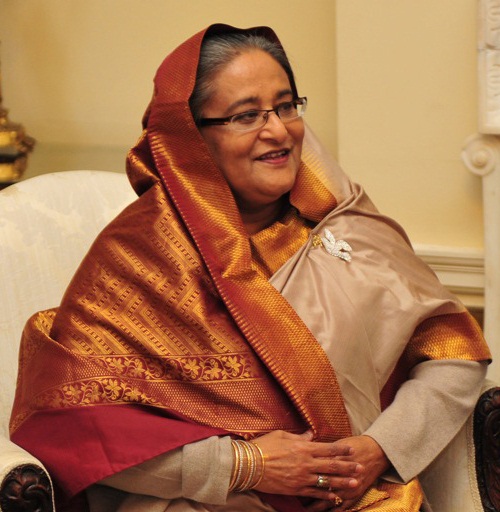Protesters call for PM Hasina’s resignation, defy nationwide curfew; UN condemns violence
On August 4, nearly 100 people were killed and hundreds more injured as anti-government protests erupted across Bangladesh. Demonstrators, led initially by students opposing a government job quota system, have called for Prime Minister Sheikh Hasina’s resignation. The protests, which began last month, have now spiralled into widespread violence.
The country’s leading Bengali-language daily, Prothom Alo, reported at least 95 deaths, including 14 police officers. Channel 24 news outlet confirmed at least 85 fatalities. In response to the escalating violence, the military announced an indefinite curfew starting Sunday evening in the capital, Dhaka, and other major cities.
Embed from Getty ImagesUnited Nations Condemnation: UN Human Rights Chief Volker Turk condemned the “shocking violence” and urged the Bangladeshi government to stop targeting peaceful protesters. He stated, “The shocking violence in Bangladesh must stop.”
Government’s Stance: Prime Minister Sheikh Hasina labelled the protesters as “criminals” rather than students, accusing them of engaging in sabotage. She urged the public to deal with them harshly. The government has also implemented a nationwide mobile internet blackout in an attempt to control the unrest.
Protesters’ Response: Despite the curfew, protesting students have called for a march to Dhaka on August 5, intensifying their demand for the Prime Minister’s resignation. Sunday’s death toll was the highest recorded in a single day of protests, surpassing the 67 deaths from the July 19 demonstrations.
International and National Reactions: The violence has prompted the Indian government to advise its nationals in Bangladesh to exercise extreme caution and avoid travel to the country. Nobel Laureate Muhammad Yunus, speaking from Paris, appealed to the international community, especially India, to urge PM Hasina to restore calm. He suggested that another election might be necessary to stabilize the country.
Economic Impact: The unrest has led to significant economic disruption, with VPN usage surging by over 5000% as citizens bypass internet restrictions. The IMF has called for political stability to support economic recovery, as the ongoing violence threatens the country’s economic stability.
Analysis:
Political: The protests reflect deep-seated political discontent in Bangladesh. The escalation from student-led demonstrations to widespread anti-government protests underscores the public’s frustration with PM Hasina’s administration. The military’s involvement and the government’s harsh response have further polarized the situation.
Social: The protests have united various segments of society, including students, parents, doctors, and teachers, reflecting broad-based support for the movement. However, the government’s crackdown and the resulting violence have created a humanitarian crisis, drawing international condemnation.
Economic: The political instability poses a severe threat to Bangladesh’s economic recovery. The IMF’s call for stability highlights the need for a resolution to the crisis. The internet blackout and curfew have disrupted daily life and economic activities, exacerbating the country’s economic challenges.
